Discoveries in genetics, cell biology and virology are clarifying the roles of heredity and environment in health and the defenses of cells against disease and infection. Innovations in bio-engineering suggest very hopeful developments for prostheses and regeneration. But scientists are also warning about pollutants, climate change, food production practices, certain medications, and stress. This collection addresses the great advances in medical research.
SftP Videos: Medical Research
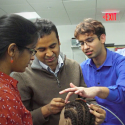
A Wearable Brain-Stimulation Device
03/22/21 Designing a wearable device to study brain function and dysfunction, with a goal of precise therapeutic interventions to treat neurodegenerative diseases Shawn Kelly
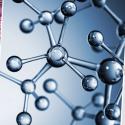
An Update on Those "Forever" Chemicals
10-17-23 WGBH Forum Network webinar PFAS, a group of chemicals added to many everyday products, became a concern years ago among medical researchers, but governmental agencies were slow to impose regulations. Philippe Grandjean
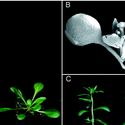
Beyond the Gene: Epigenetics Revealed
06/12/12 ew understanding of the complex relationship between genes and the epigenome. Mary Gehring
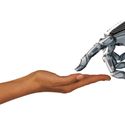
Bionic Being: The New Prosthetics
06/21/11 In this extraordinary era almost any limb, organ or tissue can be replaced. Shawn Kelly

Brain Map: How the Brain Orchestrates Motion
04/09/13 The awesome brain work necessary for picking up a pencil. Tamar Flash

Breakthrough in Antibiotics Resistance
03/24/15 An ingenious solution to the crisis of ineffective antibiotics is making headlines. Kim Lewis
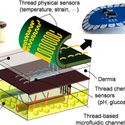
Breakthroughs in Nanotechnology
09/27/16 Advances in nanotechnology are revolutionizing medicine. A leader in the field describes recent developments and his commitment to making them available to a wide public. Sameer Sonkusale
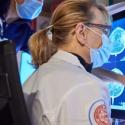
Cancer Research: How It Works and Why It's Crucial Today
04/08/25 Numerous types of cancer are increasing today and scientists are trying to identify the causes. That's why cancer research is one of the most important concerns of modern science. We learn how the research is done and also why federal funding for this work is essential. Gerald Denis
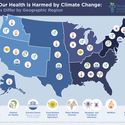
Climate Change Brings Changes to Medical Training
11/11/20 Because of climate change, many regions are experiencing diseases introduced by unfamiliar insects, microbes, and other sources. This situation requires a new approach to training medical students. Gaurab Basu, M.D., MPH
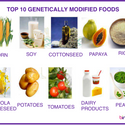
Conflicting Science on the Safety of Genetically Modified Food
06/12/14 Many nations prohibit GMO foods, but the US doesn't even require labeling. What can science tell us about GMOs? Sheldon Krimsky

Cracking the Neural Code for Speech
01/27/12 vThe Neural Prosthesis Lab at Boston University demonstrates the Brain-Computer-Interface: a communication device for the severely impaired. Frank Guenther

Creating and Testing Vaccines
02/15/21 The amazing mechanisms by which viruses infect cells and the challenge of developing effective vaccines. Forian Douam

Environmental Contaminants and Autism
07/23/13 Determining the relationship between environmental contaminants and the global increase in autism. Marc Weisskopf
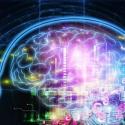
Environmental Toxins and the Brain
10/2014 Many common toxins in the environment significantly harm the fetal brain. Philippe Grandjean

Evolution of the Y Chromosome: Males Will Survive
09/23/14 The scientist who led the sequencing of the Y chromosome explains its evolution, its survival, and possible relationship to conditions and diseases that affect mostly males. David Page
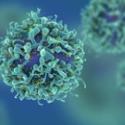
From The Cell to Cancer
07/15/14 What causes cancer, and how do the current different theories influence the research? A internationally prominent research team provides a unique view. Ana Soto and Carlos Sonnenschein

Frozen in Time: Preserving for Later Revival
01/09/24 GBH Forum Network Webinar. Innovations in bio-engineering are revolutionizing medicine. Preservation of tissues, organs, sperm/eggs can be preserved in several different ways for future use. It's a real challenge, but the methods are improving quickly. Mehmet Toner.
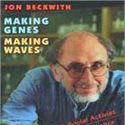
Genetics and Social Responsibility
10/07/14 A distinguished leader in genetic research discusses his dual commitment to science and ethics. Jon Beckwith

Good Diet, Good Health
10/08/21 The typical American diet, heavy on processed food and excess sugar, is associated with high levels of diabetes 2, heart disease and other conditions. What is a genuinely good diet and how does it promote health? Walter Willett

Harnessing the Bioelectric Potential of Cells for Regeneration
02/21/12 Can bioelectric signals in cells be exploited for regeneration of limbs and tissue? This is an important area of medical research. Michael Levin

Herbal Medicines Decoded: How Plants That Soothe and Cure Do It
09/10/19 From ancient traditions to modern pharmaceutical labs, certain plants have been valued for their therapeutic qualities. The Weng Lab analyzes the unique chemistry --and evolution-- of such plants. Jing-Ke Weng

How Delayed Release of Industry Data on Chemical Toxicity Impacts Health
08/21/18 Producers of perfluorinated alkylate substances (PFAS) withheld for decades the facts about the health and environmental threats of these ubiquitous toxins. Philippe Grandjean

How Effective Are Vitamin D Supplements?
04/23/24 Promoted for years as a means to strengthen bones and lower risk of multiple diseases, improved studies by JoAnn Manson and others revealed that Vitamin D supplements were not very effective at all. Natural sources, including sunshine, are much better. It’s important to understand why. JoAnn Manson

How Environmental Pollutants Impair Brain Development
04/08/14 A world authority on how environmental toxins affect brain development brings the evidence to the general public. Philippe Grandjean
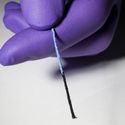
How Nanotechnology is Revolutionizing Medicine
01/21/20 The unique features of the nano-scale are revolutionizing medical research and medical care. Here is the why and the how of that revolution. Sameer Sonkusale
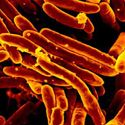
How TB Bacteria Evade Treatment
12/10/13 TB cells do not all respond to antibiotics. Discovering why is the key to effective treatment. Bree Aldridge

Innovative Solutions to Antibiotic Resistance
03/26/19 New approaches and technologies offer fresh insights to antibiotic resistance, and real solutions. Gautam Dantas

Let's Get Serious: Fossil Fuel Pollution's Impact on Health and Mortality Rate
10/29/24 A study by HSPH epidemiologist Joel Schwartz and British colleagues has revealed a much greater impact of fossil fuel pollution on health and on worldwide mortality rates than previously thought. Joel Schwartz

Long-Term Health Threats of BPA and Other Endocrine Disruptors
08/21/12 Endocrine disruptors such as BPA cause developmental problems and disease. How does this damage occur? Ana Soto and Carlos Sonnenschein

Medicating ADHD: Diagnosis and the Long-Term Effects of the Medications
03/20/13 The potential danger of long-term use of ADHD drugs. Robert Whitaker

Nanotechnology Advances for Healthcare and Environment
05/08/18 Truly innovative research: nano-tech devices for medicine and environment. Sameer Sonkusale

Nanotechnology in Medicine
04/20/17 A tour of some innovative medical nano-devices at the Tufts University Nano Lab. Sameer Sonkusale

Neural Disruption and Motor Dysfunctions
12/10/20 How neuroscientists probe the neural mechanisms behind disorders such as Parkinson's disease and other motor dysfunctions.. Jill Crittenden.
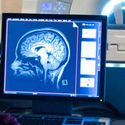
New Ways of Imaging the Brain
08/16/18 A visit to the Alan Jasanoff Lab at MIT to learn how brain scientists are developing new techniques and devices to improve brain imaging.

Nutrition for a Healthy Aging Brain
11/08/22. Can corrective nutrition prevent or reverse cognitive decline among older adults with bad diets? Here's a forthcoming study. Susan Roberts

Probing the Causes of Cancer
02/22/21 The dual role of socioeconomic background and a family of (BET) proteins in the disproportionate occurrence of certain cancers. Gerald V. Denis
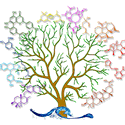
Probing the Health Molecules of Plants: The Weng Lab at Whitehead Institute
02/10/19 A visit to the Weng Lab at Whitehead Institute to learn how researchers exploit the mechanisms and molecules of plants contributing to medical innovations. Jing-Ke Weng

Psychiatric Drugs: Why They Often Fail Us Over Long Term
04/23/19 More than one in five Americans now takes a psychiatric medication. But long-term results are poor. Robert Whitaker, author of several books on this subject, discusses the problems of these meds and describes more effective initiatives.
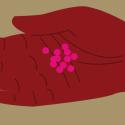
Psychotropic Drugs and Children
06/15/10 The real dangers of psychotropic drugs that are routinely prescribed for children. Robert Whitaker
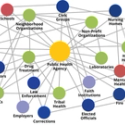
Public Health: A Deeper Perspective
04/18/17 An explanation of how environment, community, class, and other factors must be included in public health. Sandro Galea

Real Public Health Is More Than Just Healthcare
01-23-24 GBH Forum Network webinar (1 PM ET). In his newest book, Sandro Galea emphasizes that the field of public health is committed as much to preventing disease as to treating it. Public health includes the social factors that frame our lives. To develop a foundation for better health requires a rational policy dialogue. Sandro Galea
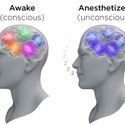
Revealing the Brain through States of Unconsciousness
11/15/11 Important insights into the brain from research on anesthesia, coma and sleep. Emery N. Brown
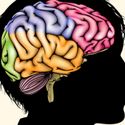
Scientists Raise the Alarm: Endocrine Disruptors Affect Brain Development
08/03/20 An important update on the impact of common toxins in the environment that permanently affect the brain -starting in the womb. The evidence of damage is far ahead of the regulation of these chemicals. Thomas Zoeller

See What I Mean? Visualizing in Science
12/11/12 Visual representation is essential for the communication of science concepts and data. Bang Wong

Social Media and Mental Health
02/21/23 There is increasing concern about the impact of social media on mental health, especially among young people. What causes this problem and how should it be addressed? Jacqueline Sperling
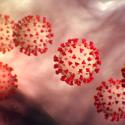
Spillover! Virus Transmission from Animals-to-Humans
07/14/21 Many viruses, including coronaviruses such as covid-19, originate in wild animals. Understanding the transfer and infection process is a major concern in medical science today. Jonathan Runstadler
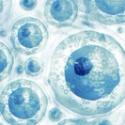
Stem Cell Research and Communicating Science
10/03/23 A distinguished pioneer in stem cell research for oral conditions, wound healing and diabetes explains the issues and the advances in this field, and the importance of science communication for the public. Jonathan Garlick

The Advent of Personalized Genomic Medicine
05/24/12 Genomic medicine will revolutionize health care, but it also introduces a challenge for data management. John Quackenbush

The Brain-Computer-Interface Paradox
05-20-25 For individuals paralyzed by injury, stroke or ALS, brain-computer-interface (BCI) devices can enable movement and even speech. However, there are concerns: specifically, that such technology could be developed for mind control. Lukas Meier

The Electric Eye: A Visual Prosthesis
10/26/10 A major breakthrough in the restoration of vision. Shawn Kelly

The Impact of Air Pollution on Health
12/12/19 Jonathan Levy of Boston University School of Public Health describes how urban air pollutants such as vehicle exhaust affect our health.
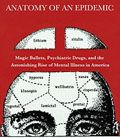
The Issue of Psychiatric Drugs
05/04/10 Medications that are effective initially can cause very serious problems later. Robert Whitaker
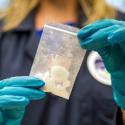
The Opioid Crisis: Origin and Implications
05/30/23 The Centers for Disease Control and Prevention (CDC) has aptly described the opioid crisis as the “worst drug overdose epidemic in [US] history.” How did that happen? Andrew Kolodny, M.D.

The Struggle to Ban Pesticides That Disrupt Brain Development
07/05/22 Scientists struggled for decades to get an EPA ban on Chlorpyrifos, a widely used pesticide known to impair brain development. As autism, ADHD and other developmental conditions increased, vested interests blocked efforts to regulate Chlorpyrifos and other agricultural toxins. Philip Landrigan
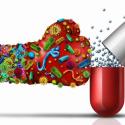
The Widespread Resistance to Antibiotics: Stuart B. Levy, M.D.
08/13/13 Exploring the "antibiotic paradox" and the decades-long efforts of Dr. Stuart Levy to avert the danger we have created
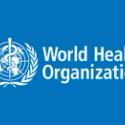
The World Health Organization: Lifeline for the World's Children
09/08/20 A distinguished physician-researcher explains the many threats to children's health all over the world, and how millions of young lives are saved by the W.H.O. Davidson Hamer, M.D.
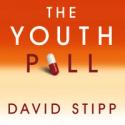
The Youth Pill
09/10/10 What are the possibilities of extending human life and good health? David Stipp

They Didn't Believe It! The Germ Theory of Disease
02/03/20 Despite great medical accomplishments in ancient civilizations, then medical advances from the 17th century on, the connection between germs and disease was unknown.

Traffic Pollution and Child Cognition
09/27/10 The effects of vehicle pollutants on the developing brain. Shakira Franco Suglia
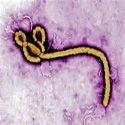
Understanding Viruses: The Connor Lab
07/2014 The Connor Lab at Boston University is a leader in the effort to understand how viruses infect and how cells learn how to block infection. John Connor
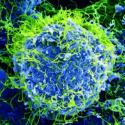
Unraveling the Secrets of Viruses
05/17/11 Why are viruses so successful, and can we manage the bad ones? John Connor
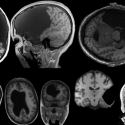
Unusual Brain Adaptations
05/30/23 Language acquisition despite the absence of a critical brain region for language demonstrates the remarkable adaptability of the human brain. Evelina Fedorenko
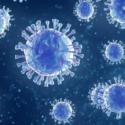
Virus vs Host: An Enduring Battle
02/14/23 Viruses must appropriate the DNA/RNA of living cells in order to survive. The battle between viruses and cell defenses is a classic example of the epic struggles that characterize Nature. John Connor
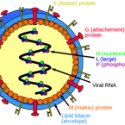
Viruses: Threats in a Tiny Package
11/06/14 Viral infections that were once obscure are potentially global threats in a highly linked world. New tools are being deployed to identify and block these diseases. John Connor

Weighing In on Metabolism
09/13/22 The increasing rate of obesity is a public health issue. Nutritionists analyze the cause and the solution. Susan Roberts

What Ails American Healthcare?
08/30/22 The U.S. healthcare system ranks last among 11 high-income countries. We spend more than other nations on medical care, but the service is seriously inadequate. What can be done? Melissa Gariddo

What Should We Talk about When We Talk about Health?
01/30/18 A comprehensive approach to public health: the body, the environment, the culture, the conditions. Sandro Galea

What's Your DNA Profile Doing on a Federal Database?
04/11/11 The public should be more familiar with the broad implications of forensic DNA. Sheldon Krimsky.

Who Funds the FDA - And Why Does It Matter?
06/07/22 An increasing percentage of the Food and Drug Agency's funding comes from the pharmaceutical industry. How does this arrangement affect the agency in general and the approval of new medications in particular? Aaron Kesselheim
